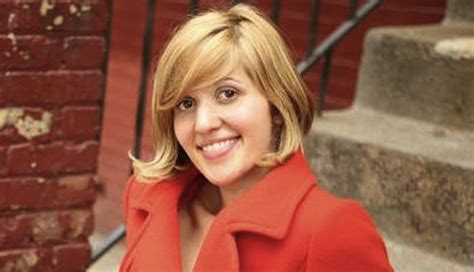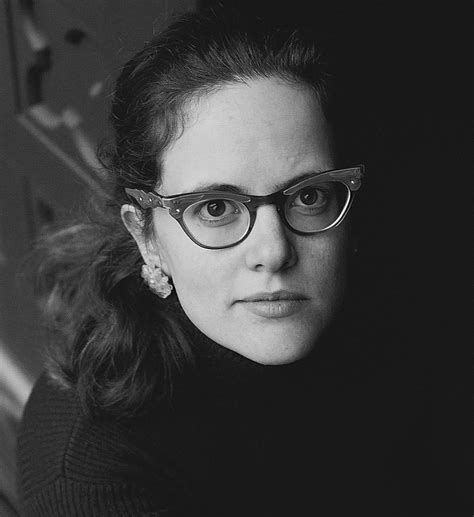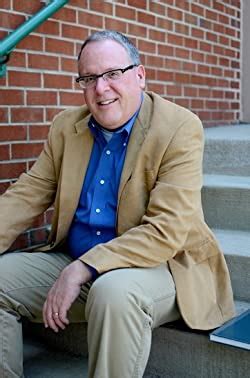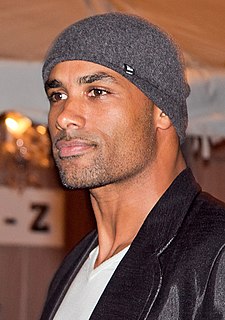A Quote by Elna Baker
I think most religious people experience just as much doubt as they do faith; they just don’t admit it. (13)
Quote Topics
Related Quotes
Take faith, for example. For many people in our world, the opposite of faith is doubt. The goal, then, within this understanding, is to eliminate doubt. But faith and doubt aren't opposites. Doubt is often a sign that your faith has a pulse, that it's alive and well and exploring and searching. Faith and doubt aren't opposites, they are, it turns out, excellent dance partners.
Art glows with faith even in its weakest parts. At every moment, writing is an act of self-confidence – the sheerest, most determined, most stubborn self-belief. You CAN have faith and doubt at the same time; the most insecure writer on the planet has faith that shines just as bright as her doubt, and she deserves props for that. It might be hidden deep, she might not feel it and you might not see it, but it’s in there, or she wouldn’t be able to write.
Faith is a great thing, and really religious people would like us to believe that faith and knowing are the same thing, but I don't believe that myself. Because there are too many different ideas on the subject. What we know is this: When we die, one of two things happens. Either our souls and thoughts somehow survive the experience of dying or they don't. If they do, that opens up every possibility you could think of. If they don't, it's just blotto. The end.
and while faith based on theological reasoning is today universally engaged in a bitter struggle with doubt and resistance from the prevailing brand of rationalism, it does seem that the naked fundamental experience itself, that primal seizure of mystic insight, stripped of religious concepts, perhaps no longer to be regarded as a religious experience at all, has undergone an immense expansion and now forms the soul of that complex irrationalism that haunts our era like a night bird lost in the dawn.
As soon as we ask what faith is and what sort of mistreatment of faith causes doubt, we are led to the first major misconception about doubt-the idea that doubt is always wrong because it is the opposite of faith and the same thing as unbelief. What this error leads to is a view of faith that is unrealistic and a view of doubt that is unfair.
I think there's just an inherent burden of being alive and being a woman. No man would ever admit that, but I think women know it, which is: You know more than men, you know more than most people you're dealing with every day, and you know that's it up to you to make things move forward, and you get paid half as much, but you just do it.
You see, this people [Noah, Abraham, Sarah, Jacob, etc.] simply believed that God existed in the situation they were faced with, and they trusted Him rather than themselves. The result? God said, "That pleases Me." They were men and women just like you and I, which is the most encouraging part of all. We don't find golden haloes, or perfect backgrounds, or sinless lives, we just find people. People who failed, who struggled, who doubted, who experienced hard times and low times in which their faith was eclipsed by doubt. But their lives were basically characterized by faith.
Some days I am not sure if my faith is riddled with doubt, or whether, graciously, my doubt is riddled with faith. And yet I continue to live in a world the way a religious person lives in the world; I keep living in a world that I know to be enchanted, and not left alone. I doubt; I am uncertain; I am restless, prone to wander. And yet glimmers of holy keep interrupting my gaze.
To come to faith on the basis of experience alone is unwise, though not so foolish as to reject faith altogether because of lack of experience ... the quality of a Christian's experience depends on the quality of his faith, just as the quality of his faith depends in turn on the quality of his understanding of God's truth.
Doubt is most often the source of our powerlessness. To doubt is to be faithless, to be without hope or belief. When we doubt, our self-talk sounds like this: 'I don't think I can. I don't think I will.'... To doubt is to have faith in the worst possible outcome. It is to believe in the perverseness of the universe, that even if I do well, something I don't know about will get in the way, sabotage me, or get me in the end.































